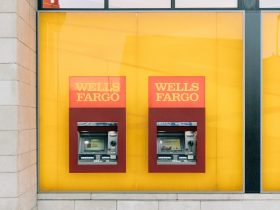Welcome back to the Ethical Spending Chronicles! Today, let’s embark on a journey to uncover the fascinating relationship between ethical decision-making and its impact on our financial well-being. Buckle up, as we explore how our ethical choices not only shape our moral compass but also wield a significant influence over the health of our bank accounts.

Picture this: you’re strolling down the grocery aisle, eyeing that delicious but questionably sourced chocolate bar. Your taste buds are already celebrating, but a tiny voice inside wonders about the cocoa farmers’ fair treatment. This internal tug-of-war is a familiar experience for many of us. The choices we make in these moments, whether to prioritize our immediate desires or consider the broader implications of our actions, can have profound consequences on our financial stability.
Ethical decision-making in the context of personal finance isn’t just about shunning unethical investments or avoiding products with dubious sourcing. It extends to all areas of our financial life, from investment strategies and spending habits to career choices and philanthropic endeavors. Let’s delve deeper into how ethical considerations influence our financial wellness:
The Ethical Investment Conundrum
Many of us dream of a healthy portfolio that not only yields financial returns but also aligns with our moral values. Enter the world of ethical investing, where investors seek companies that prioritize social responsibility and sustainable practices. Investing in companies with strong ethical standings can not only contribute to the betterment of society but also generate considerable returns. Take the example of sustainable energy companies, which not only contribute to a cleaner environment but also position investors at the forefront of a burgeoning industry. Ethical investing is no longer just about warm feelings; it’s increasingly becoming a lucrative financial strategy.
The Cost of Ethical Living
Living ethically often comes with a perceived price tag. The allure of fast fashion and cheap products can be alluring, but at what cost? Ethical spending entails paying attention to the sourcing of products, understanding the impact on the environment, and considering fair wages for laborers. Although ethical products might seem more expensive at first glance, they often outshine their cheaper counterparts in terms of durability and sustainability. Moreover, investing in quality products and sustainable practices can save us from the recurring cost of constant replacements, ultimately contributing to a healthier financial bottom line.
Ethical Career Choices
In today’s world, where corporate social responsibility is gaining prominence, choosing an ethical career path is more crucial than ever. Working for companies that prioritize ethical practices not only aligns with our moral compass but can also lead to long-term financial stability. Companies with strong ethical cultures tend to attract and retain top talent, fostering a positive work environment and potentially leading to better career growth and financial rewards. Moreover, the satisfaction derived from contributing to a meaningful cause can be a priceless component of overall financial wellness.
Giving Back: The Ethical Philanthropy
Charitable giving forms a cornerstone of ethical spending. But it’s not just about writing a check; it’s about understanding the impact of our donations. Ethical philanthropy involves supporting organizations that operate transparently, allocate resources efficiently, and have a tangible, positive impact on society. When we invest in ethical philanthropy, we ensure that our contributions are utilized effectively, maximizing the benefits for those in need while also providing a sense of fulfillment and purpose, which is invaluable for our emotional and financial well-being.
The Ripple Effect of Ethical Decisions
The beauty of ethical decision-making lies in its ripple effect. Every ethical choice, no matter how small, has the potential to create a ripple effect that transcends individual actions. When consumers demand ethical products, companies are compelled to adapt their practices, thereby influencing entire industries. Ethical investments encourage businesses to adopt sustainable and socially responsible practices, thereby shaping the future of our global economy. Understanding this ripple effect empowers us to recognize our ability to steer the direction of our financial world towards a more ethical and sustainable future.

As we conclude our exploration, it’s clear that ethical decision-making isn’t just a moral obligation; it’s a catalyst for financial well-being. Our choices have the power to shape not only our financial portfolios but also the world we live in. So the next time you stand at that crossroads, wondering whether to splurge on that chocolate bar, remember that your choice goes beyond mere indulgence. It has the potential to influence the lives of farmers, impact the environment, and even shape your financial future. Let’s strive to make ethical decisions, not just for the world we want to live in, but for the financial wellness we deserve.
Stay tuned for more tales of ethical spending in the next edition of the Ethical Spending Chronicles. Until then, remember, every ethical decision counts, and your wallet might just thank you for it!

































